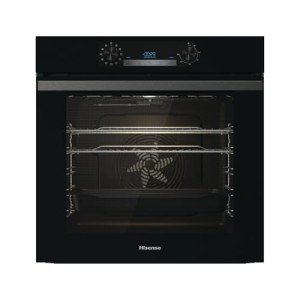Check Out: How Bulit In Oven Is Taking Over And What We Can Do About It
The Comprehensive Guide to Built-in Ovens: Features, Benefits, and FAQs
Built-in ovens have become a staple in modern-day kitchen areas, supplying convenience, style, and efficiency. Unlike standard freestanding ovens, built-in designs are designed to integrate perfectly into kitchen cabinetry, thereby elevating both the function and looks of kitchen areas. This post dives deep into the world of built-in ovens, discussing their features, benefits, installation considerations, and answers to regularly asked questions.
What is a Built-in Oven?
A built-in oven is a home appliance that is designed to be set up straight into a wall or kitchen cabinets. just click for source offers house owners the ability to develop a customized cooking area, taking full advantage of available kitchen square footage while offering a streamlined, expert appearance.
Key Features of Built-in Ovens
Built-in ovens are loaded with functions that deal with a range of cooking styles and preferences. Secret features consist of:
Feature
Description
Variety of Cooking Modes
Alternatives such as convection baking, broiling, and self-cleaning modes to boost cooking adaptability.
Size and Configuration
Readily available in various sizes and heights to fit particular kitchen designs, ranging from compact to larger units.
Style Options
Visual choices including stainless steel, black stainless, and custom-made panels to match any kitchen decor.
Smart Technology
Many built-in ovens come geared up with Wi-Fi abilities, allowing remote monitoring and control via smart device apps.
Multi-Functionality
Some designs integrate oven and microwave or include steam functions to produce varied cooking options.
Benefits of Built-in Ovens
The advantages of incorporating a built-in oven into a kitchen design extend beyond mere visual appeals. Here are some noteworthy benefits:
1. Area Efficiency
Built-in ovens maximize counter top area by removing the need for a freestanding system. Their integration into kitchen cabinetry permits for a cleaner kitchen layout.
2. Boosted Visual Appeal
With smooth styles and adjustable finishes, built-in ovens enhance the total appearance of the kitchen, adding to a more cohesive style.
3. Improved Cooking Performance
Lots of built-in models provide advanced cooking innovations, such as convection cooking, which flows hot air for even cooking, minimizing cooking times and improving results.
4. Convenience and Accessibility
Built-in ovens are frequently positioned at eye level, making it much easier to check on cooking development, lowering the need to flex down, and enhancing safety.
5. Increased Home Value
A properly designed kitchen with built-in appliances can considerably increase a home's value, making it more appealing to potential buyers.
Installation Considerations
When picking and installing a built-in oven, there are numerous factors to think about:
- Kitchen Layout: It's necessary to plan how the oven will suit the existing area, consisting of cabinet heights and clearance requirements.
- Electrical and Ventilation Needs: Built-in ovens usually need specific electrical setups; make sure that the kitchen abides by local electrical regulations.
- Expert Installation: Due to the complexity of setup, hiring an expert can ensure that the oven is set up safely and properly.
Types of Built-in Ovens
Built-in ovens can be found in various types, each suited for various cooking designs. Below are some of the most common:
- Single Oven: A conventional option for daily cooking requirements, supplying versatility for baking, roasting, and broiling.
- Double Oven: Offers two separate cooking compartments, enabling simultaneous preparation of numerous meals— a favorite for large families and those who captivate frequently.
- Wall Oven: These ovens are totally integrated into the wall and come in numerous designs, consisting of steam ovens and mix microwave ovens.
Popular Brands of Built-in Ovens
Numerous trusted brands provide high-quality built-in ovens, understood for their dependability and series of functions:
- Bosch: Known for sleek style and advanced cooking innovation.
- KitchenAid: Offers imaginative functions and multi-functional styles.
- Samsung: Integrates wise innovation with a modern aesthetic.
- GE Appliances: Provides a variety of options for different budgets.
Often Asked Questions (FAQs)
1. How do I pick the right built-in oven for my kitchen?
When choosing a built-in oven, think about the size of your kitchen, your cooking style and frequency, the readily available spending plan, and any necessary electrical outlets or ventilation choices.
2. Are built-in ovens energy efficient?
Numerous built-in ovens include energy-efficient technologies, such as much better insulation and accurate temperature controls, which can lead to less energy usage compared to standard ovens.
3. Can I install a built-in oven myself?
While some property owners may attempt DIY setup, working with a professional is highly suggested to guarantee safe and correct installation, specifically worrying electrical connections.
4. What maintenance do built-in ovens need?
Regular upkeep consists of cleaning the oven exterior and interior, inspecting the seals for integrity, and guaranteeing that any clever features or controls are upgraded as required.
5. Do built-in ovens come with service warranties?
Yes, the majority of respectable brands provide guarantees on their built-in ovens, generally covering parts and labor for a given period. Make certain to examine the details before acquiring.
Built-in ovens provide a mix of design, performance, and performance, making them a popular choice for both contemporary and standard kitchens alike. With thoughtful consideration of features, installation, and maintenance, house owners can enhance their cooking experience while adding significant worth to their residential or commercial properties. Whether selecting just click for source or double oven, the investment in a built-in model guarantees to reinvent the cooking landscape of any home.
